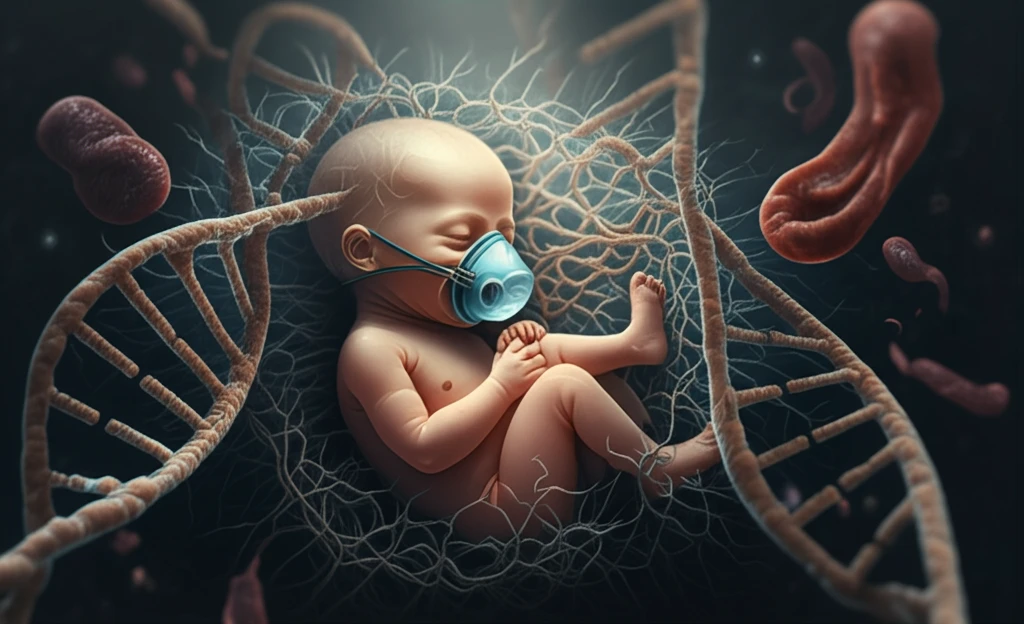
Unraveling PHOX2B: A Gene Mutation's Impact on Infant Health
"Understanding Congenital Central Hypoventilation Syndrome and Hirschsprung's Disease"
Congenital Central Hypoventilation Syndrome (CCHS) is a rare and critical condition that disrupts a person's ability to control their breathing automatically, especially during sleep. This disorder is intimately linked to mutations in the PHOX2B gene, a key player in the development of the nervous system.
Adding to the complexity, mutations in the same PHOX2B gene have been implicated in Hirschsprung's disease, a condition affecting the large intestine and causing severe constipation or intestinal blockage. In some instances, a variant form of Hirschsprung's disease occurs, presenting diagnostic challenges due to its subtle or atypical presentation.
This article dives into a compelling case study that investigates the intricate relationship between PHOX2B gene mutations, CCHS, and variant Hirschsprung's disease in an infant. By understanding the genetic underpinnings and clinical manifestations, healthcare professionals and families can be better prepared to manage and treat these complex conditions.
A Case of Profound Genetic Impact

A recent study published in the European Journal of Medical Genetics sheds light on a particularly challenging case involving an infant with both congenital central hypoventilation syndrome (CCHS) and variant Hirschsprung's disease. This case is notable because it involves a novel mutation in the PHOX2B gene, further expanding our understanding of how genetic variations can lead to complex health outcomes.
- Initial Diagnosis: Fetal growth restriction and polyhydramnios led to premature delivery.
- Genetic Confirmation: Novel PHOX2B gene mutation identified, confirming CCHS.
- Intestinal Issues: Pathological exams confirmed variant Hirschsprung's disease due to bowel obstruction.
- Complex Care: Despite intensive care, the infant succumbed to sepsis and fungemia at 197 days old.
Implications and Future Directions
This detailed case underscores the critical role of the PHOX2B gene in the development and function of both the respiratory and digestive systems. It highlights that mutations in this gene can lead not only to well-recognized conditions like CCHS and Hirschsprung's disease but also to less typical variants that pose diagnostic and therapeutic challenges. Further research into such genetic anomalies is essential for improving diagnostic accuracy and tailoring treatments to meet the unique needs of each patient.
